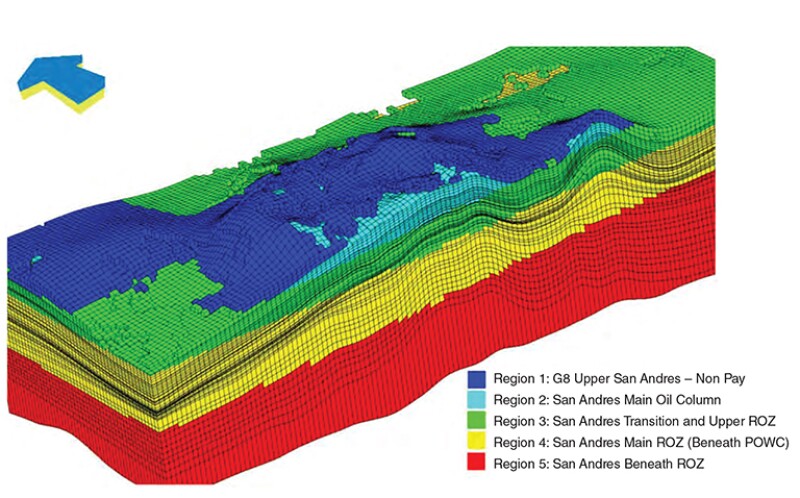Reservoir production forecasts are inherently uncertain because of the lack of quality data available to build predictive reservoir models. Traditionally, a best estimate for relative permeability data is assumed during the history-matching process despite significant uncertainty. Performing sensitivities around the best-estimate relative permeability case will cover only part of the uncertainty space. In the complete paper, the authors present an application of a Bayesian framework for uncertainty assessment and efficient history matching of a Permian carbon-dioxide (CO2) enhanced oil recovery field for reliable production forecasting.
Field Details
Regional and Structural Geology.
×


Continue Reading with SPE Membership
SPE Members: Please sign in at the top of the page for access to this member-exclusive content. If you are not a member and you find JPT content valuable, we encourage you to become a part of the SPE member community to gain full access.

